The education system needs to be reoriented towards wellbeing if children and young people are to overcome a complex web of challenges and live fulfilled and happy lives, says Thrive Managing Director Anna Smee. This article first appeared on the Sec Ed website.
The education system needs to change - here's how
According to the NHS, almost one in five young people now have a probable mental health disorder – up from one in nine before the pandemic (Newlove-Delgado et al, 2022).
Behind those huge numbers are thousands of real lives; children and young people struggling with a perfect storm of factors. These include an increasing emphasis on academic achievements, the fallout of the pandemic on their education and family lives, and wider concerns about the economy, climate change and instability both at home and abroad.
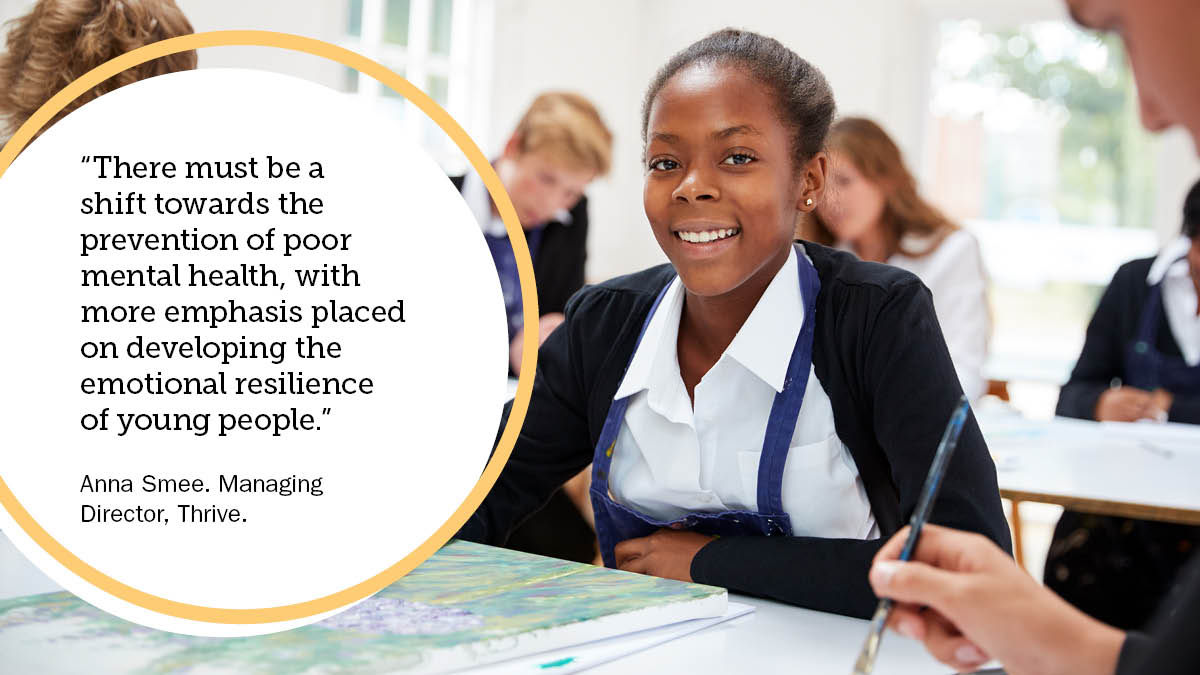
Life is just as tough for the teachers, teaching assistants, parents and carers trying to help these young people navigate their way through these complex challenges.
We need to acknowledge that the wellbeing challenges created by these pressures aren’t going to be fixed overnight. And we need to work together to offer as much support and guidance as possible, while at the same time striving to create a system that places wellbeing at its core.
A shift towards prevention
The change needed is clear enough: there must be a shift towards the prevention of poor mental health, with more emphasis placed on developing the emotional resilience of young people so that our classrooms are full of happy, confident young people who are engaged with their education and ready to learn.
Good exam grades should be just one, and not the only, indicator of lives well lived. Academic success may be an indicator of long-term earnings potential, but it is an unreliable indicator of whether a young person will be happy.
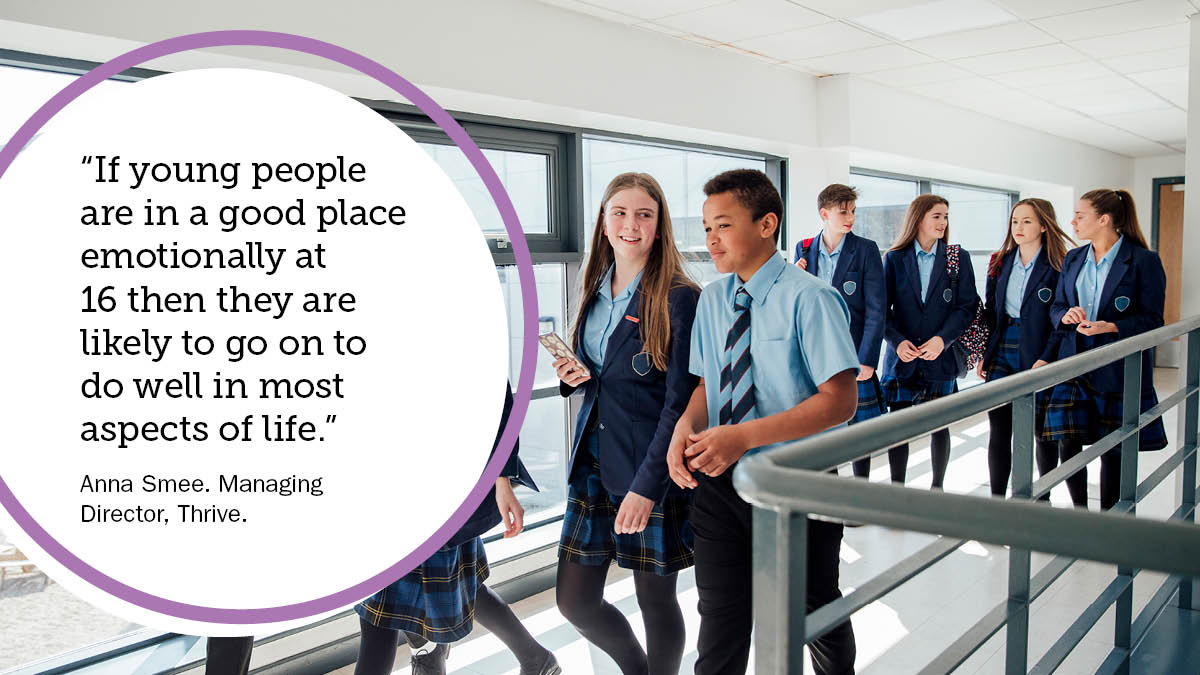
If young people are in a good place emotionally at 16 then they are likely to go on to do well in most aspects of life. And they are much more likely to succeed academically if they are in a happy, healthy place where they are mentally strong and resilient.
Most parents already know this and worry more about their child's wellbeing than they do about their lifetime earnings. According to a survey conducted for the Times Education Commission earlier this year, 45% of parents cited wellbeing as being the most important thing for them when they are looking at a secondary school for their child (TEC, 2022).
And a recent survey from the Children and Young People’s Mental Health Coalition found that only 21% of young people and 7% of parents felt that schools are responsive to mental health needs when dealing with behaviour (CYPMHC, 2022).
This indicates that there needs to be more recognition of the role of mental wellbeing and the fact that it is the key that unlocks attainment, attendance and behaviour.
The role of neuroscience
Our growing knowledge of neuroscience reinforces the case for an education system that acknowledges the role of wellbeing. Because we know how young people's brains work and develop over time, we can identify the key moments in their lifetime when we should be supporting them to develop the social and emotional skills they need to be mentally strong and resilient.
I think parents, carers and teachers are starting to realise that it is in the support and promotion of wellbeing that we should be investing our time and money because it will give us better outcomes for individuals and better outcomes for society. We need government to do the same.
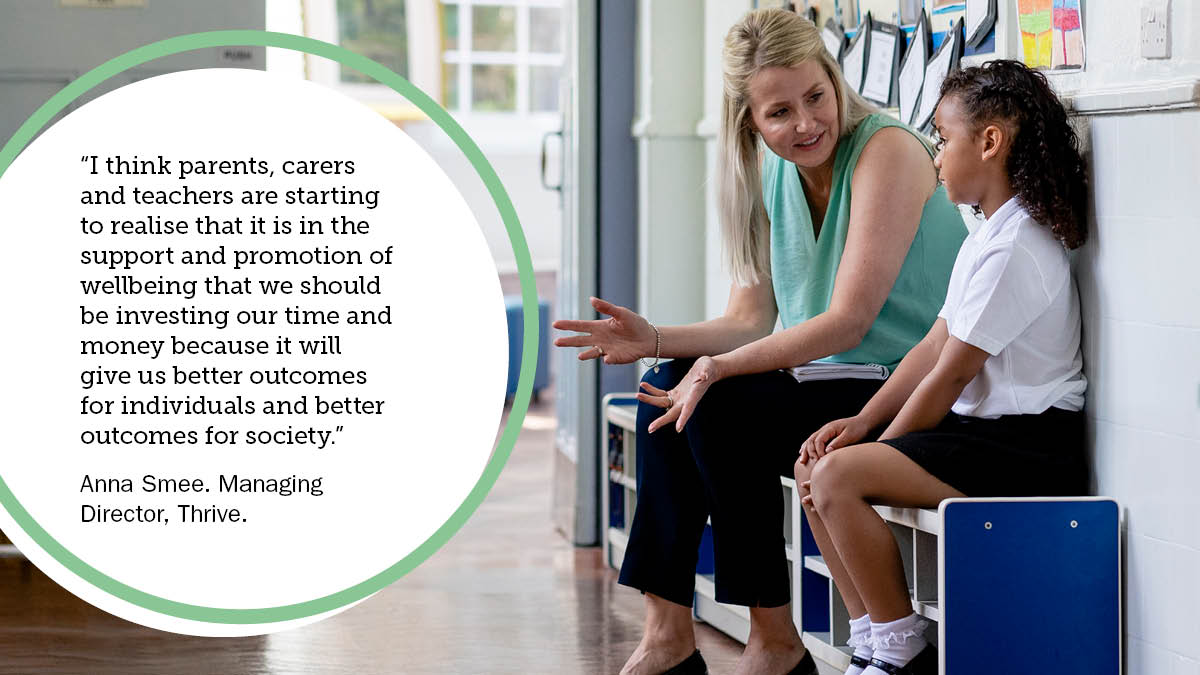
The government’s funding of mental health leads in every school by 2025 is a positive move but there needs to be a more fundamental recognition that it is the system as it is currently constituted that isn’t helping the wellbeing of our young people.
We know that the national purse strings are even tighter since the political and economic turbulence of the autumn and that debates about resources will continue. But it is cheaper to take a preventative stance rather than to try and fix these problems later.
A joined up approach is crucial
The NHS has shown the way here; in recent years there has been widespread recognition among health professionals about the importance of preventative action, community care, and trying to ensure that people don't get to that point where they need a referral to hospital.
Bringing that rationale into education and taking a more joined up approach is crucial. Preventative work can’t happen in the GP surgery. It needs to happen in the school where young people spend most of their day. The more we can do earlier to help young people understand how to manage their emotions, the better.
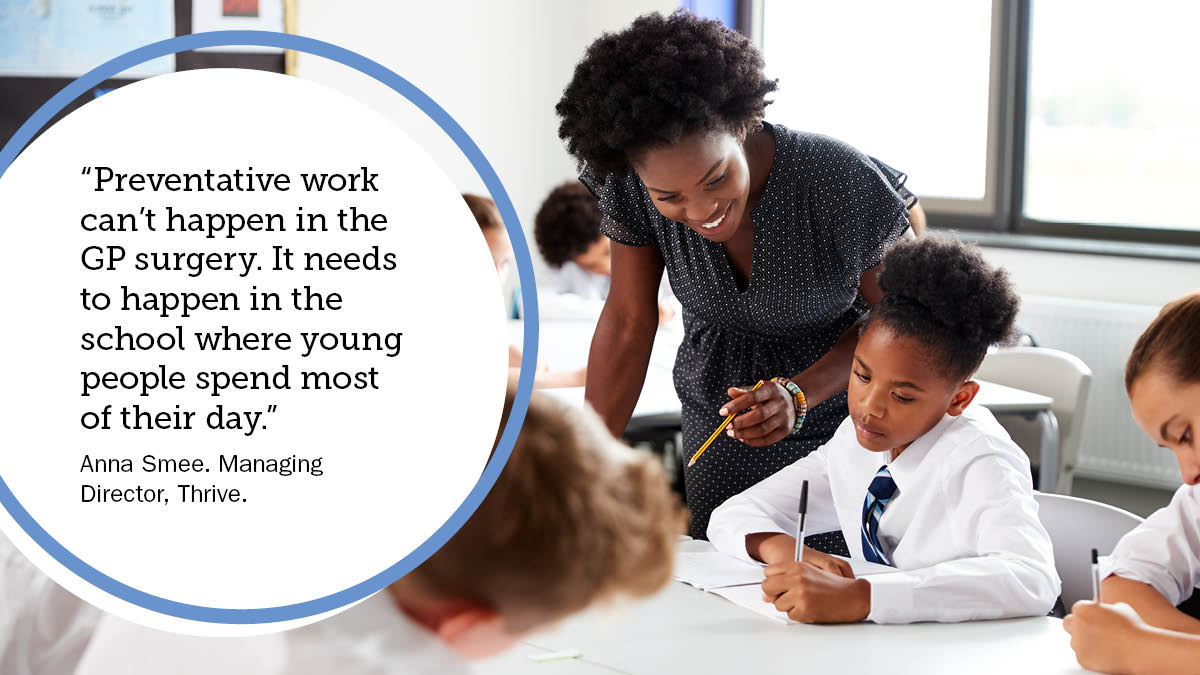
Early action will prevent young people from being excluded from school. This will ultimately reduce the numbers needing alternative provision, or ending up not in employment, education or training or even in prison.
If young people experience poor outcomes like these, they are also much more likely to develop depression. This in turn increases the likelihood of developing comorbidities such as diabetes. Shifting the emphasis of our education system away from a narrow focus on attainment and towards a much broader approach which prioritises wellbeing should be our ambition.
'It makes absolute sense'
I concede there is still some nervousness in the education system about focusing on wellbeing, but it makes absolute sense when you see it in action in the classroom. Good mental health is intrinsically linked to good attendance, attainment and behaviour, so if we want to improve these, we need to be building on a foundation of emotional wellbeing and resilience.
If we have a 14-year-old boy who is disruptive in class, is the best approach to order him out of the classroom and hope that when he returns, he will magically be re-engaged? Or do we adopt a different strategy which seeks to understand such behaviour as a way of communicating an unmet need?
.jpg)
The latter can provide us with a way into actually identifying and addressing the emotions manifested in such behaviour, rather than focusing on punishing the behaviour itself. It’s a good example of putting emotional wellbeing at the centre of your response, and it will ultimately deliver a greater long-term impact.
Over to you
At Thrive, we’ve been supporting educators to help young people self-regulate and engage with their learning for over 25 years. If you’re seeking calmer classrooms, engaged learners and improved attainment, click here to book a Discovery Call with your regional expert. Designed to fit in around your schedule, these free 30-minute conversations via Teams give you a chance to have your questions answered, decide if our service is a fit for your needs, and identify if you qualify for a £1,200 DfE grant to spend in your setting.
Pass it on
Small actions can lead to a big ripple effect. If you enjoyed this post or found it helpful, please consider supporting us in our mission to help every child and young person feel safe, supported and ready to learn by sharing it using the social media buttons below.
Want to join a like-minded community of senior leaders and classroom staff benefitting from insights and strategies to improve attendance, behaviour and attainment? Add your email address below. (It’s easy to unsubscribe).

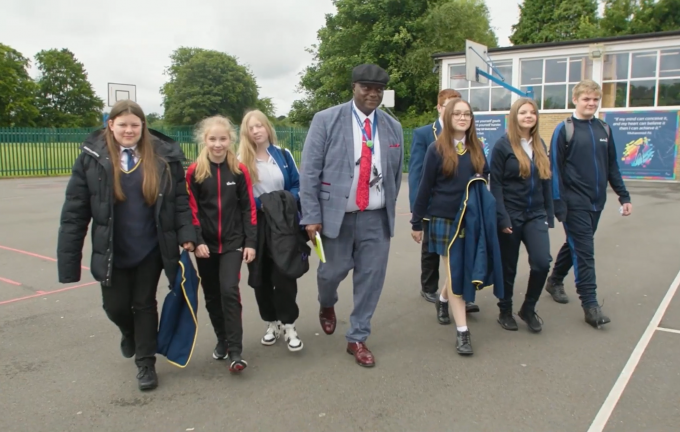



_680.jpg)
